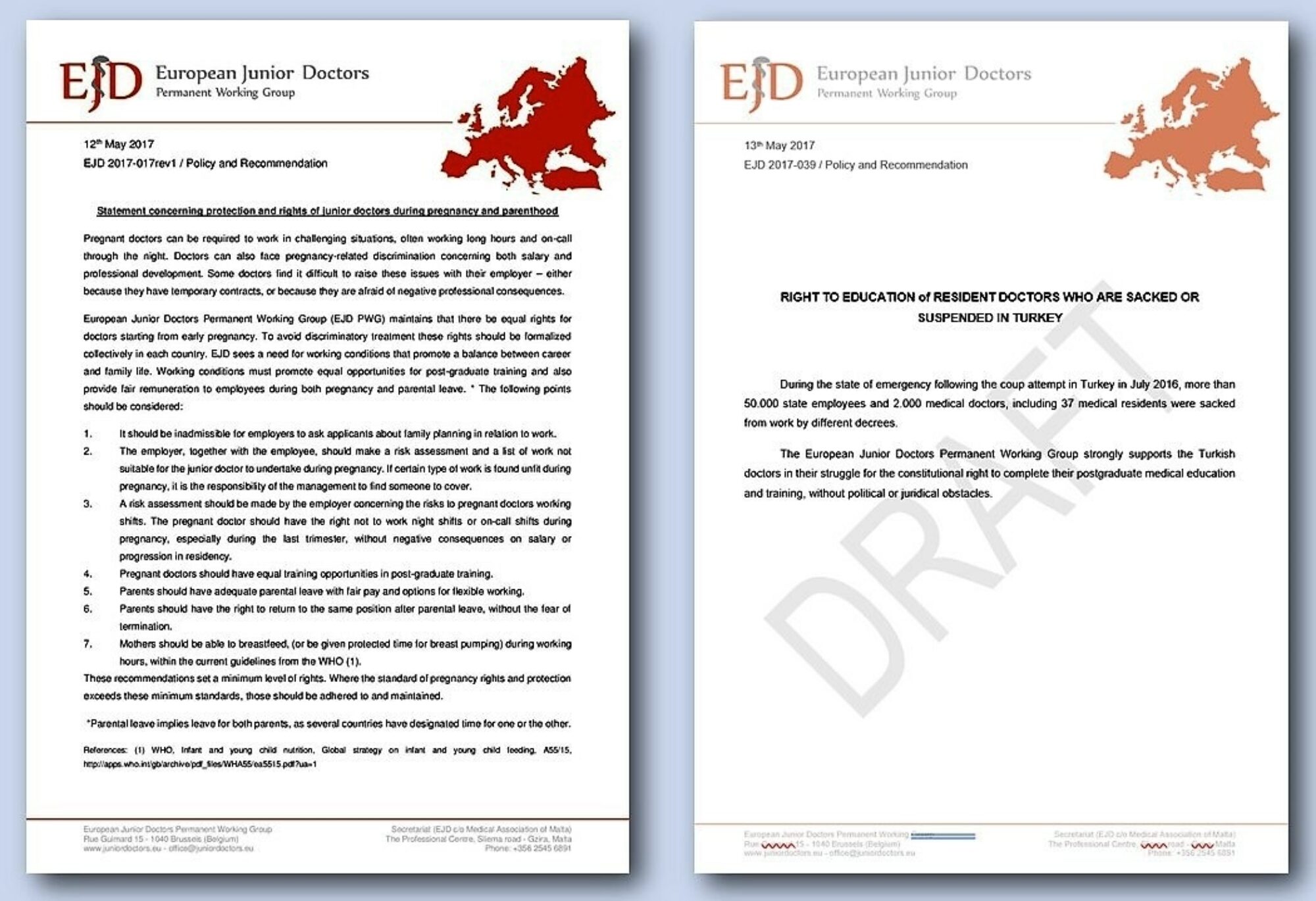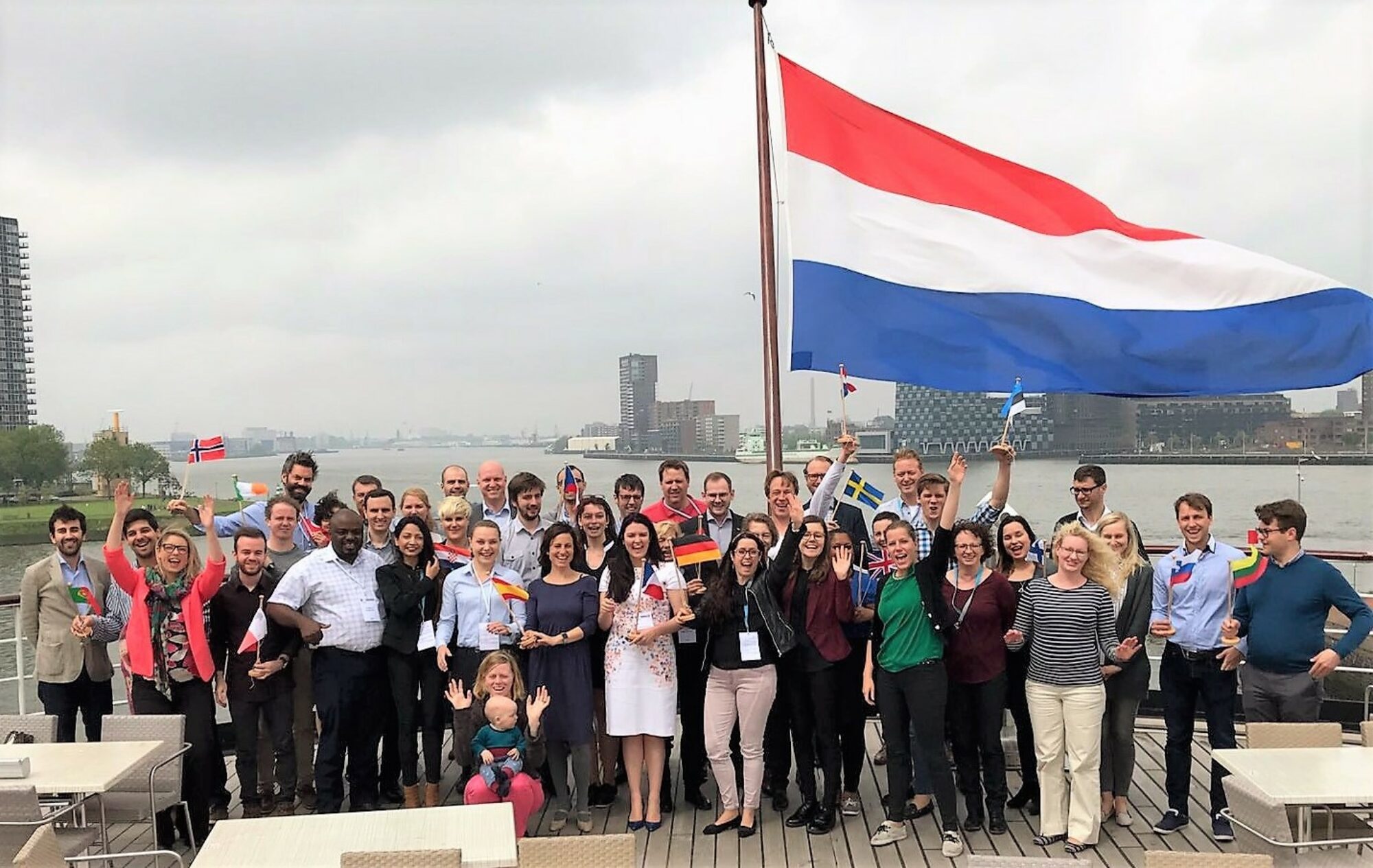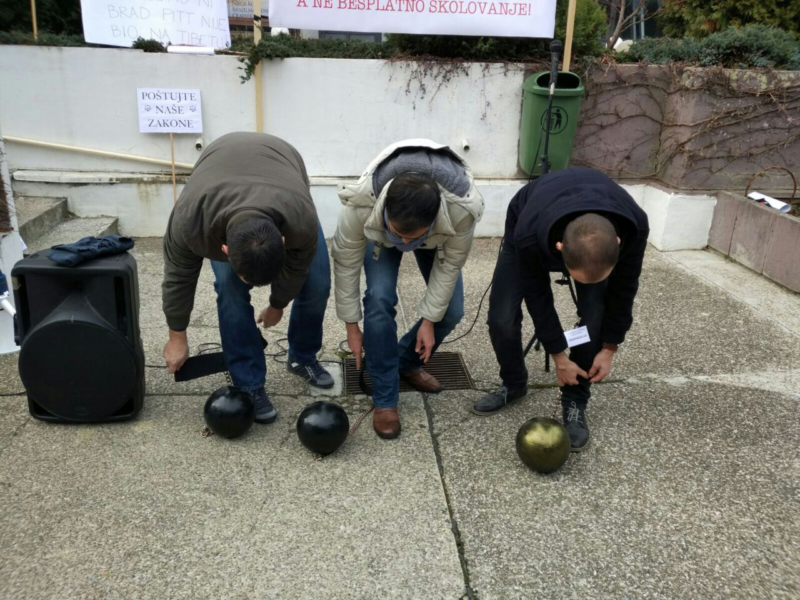Statement concerning protection and rights of junior doctors during pregnancy and parenthood
Pregnant doctors can be required to work in challenging situations, often working long hours and on-call through the night. Doctors can also face pregnancy-related discrimination concerning both salary and professional development. Some doctors find it difficult to raise these issues with their employer – either because they have temporary contracts, or because they are afraid of negative professional consequences.
European Junior Doctors Permanent Working Group (EJD PWG) maintains that there be equal rights for doctors starting from early pregnancy. To avoid discriminatory treatment these rights should be formalized collectively in each country. EJD sees a need for working conditions that promote a balance between career and family life. Working conditions must promote equal opportunities for post-graduate training and also provide fair remuneration to employees during both pregnancy and parental leave. * The following points should be considered:
- It should be inadmissible for employers to ask applicants about family planning in relation to work.
- The employer, together with the employee, should make a risk assessment and a list of work not suitable for the junior doctor to undertake during pregnancy. If certain type of work is found unfit during pregnancy, it is the responsibility of the management to find someone to cover.
- A risk assessment should be made by the employer concerning the risks to pregnant doctors working shifts. The pregnant doctor should have the right not to work night shifts or on-call shifts during pregnancy, especially during the last trimester, without negative consequences on salary or progression in residency.
- Pregnant doctors should have equal training opportunities in post-graduate training.
- Parents should have adequate parental leave with fair pay and options for flexible working.
- Parents should have the right to return to the same position after parental leave, without the fear of termination.
- Mothers should be able to breastfeed, (or be given protected time for breast pumping) during working hours, within the current guidelines from the WHO (1).
These recommendations set a minimum level of rights. Where the standard of pregnancy rights and protection exceeds these minimum standards, those should be adhered to and maintained.
*Parental leave implies leave for both parents, as several countries have designated time for one or the other.
References: (1) WHO, Infant and young child nutrition, Global strategy on infant and young child feeding A55/15 http://apps.who.int/gb/archive/pdf_files/WHA55/ea5515.pdf?ua=1







Kommentarer